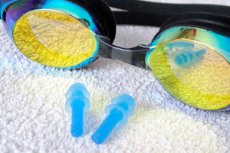Loud sounds impair hearing: how to avoid this?
Last reviewed: 16.12.2022

All iLive content is medically reviewed or fact checked to ensure as much factual accuracy as possible.
We have strict sourcing guidelines and only link to reputable media sites, academic research institutions and, whenever possible, medically peer reviewed studies. Note that the numbers in parentheses ([1], [2], etc.) are clickable links to these studies.
If you feel that any of our content is inaccurate, out-of-date, or otherwise questionable, please select it and press Ctrl + Enter.

According to world statistics, hundreds of millions of patients currently suffer from various auditory impairments . Some people have congenital hearing problems, while others have lost it as a result of frequent or prolonged exposure to sounds played at high volumes. This includes loud listening to music on headphones. American biologists have set themselves the task of helping such patients. As a result, they developed a kind of medicine that creates protection for the hearing organs.
As scientists explain, specific hairy ear structures located inside the organ of hearing catch sound vibrations and at this moment produce glutamate - a chemical substance that helps transmit sound impulses to the brain.
What leads to hearing impairment? Under the influence of excess noise, glutamate production is greatly increased in people. As a result, the function of the hair structures is sharply disrupted, which becomes the starting point in the decrease in auditory function.
Further, it was experimentally discovered: some cells involved in the transport of sound impulses to the brain are devoid of the protein substance GluA2. It turns out that these cells help calcium ions to penetrate the region of the inner ear and provoke disturbances in it. Having tracked this process, experts worked on the creation of a substance that can block receptors that do not have GluA2 protein. Presumably, this substance was supposed to help maintain hearing.
The next step was to conduct laboratory tests on rodents. The test result was as follows: the new tool really protected the inner ear from the damaging effects of calcium ions. At the same time, cells containing the GluA2 protein continued to successfully transmit sound vibrations to the brain. It turns out that the created substance is able to protect people's hearing even under the influence of loud sounds, without the risk of its deterioration.
True, before the mass production of such a medicine and its introduction on sale, many more work steps should be carried out. The first step should be a practical test involving real people, since the first experiments were performed on rodents. The second stage is the improvement of a new drug. In the course of research, it was introduced into the inner ear surgically, which is completely inconvenient and not suitable for clinical practice. Therefore, scientists have to think about creating a medication in the form of ear drops. How much time will pass from the moment the drug is created to the possibility of its practical use is unknown. Most likely, scientists will need several years. In the meantime, you should protect your ears with more affordable means - for example, avoid excessive noise, and if necessary, use special “ear plugs”.

